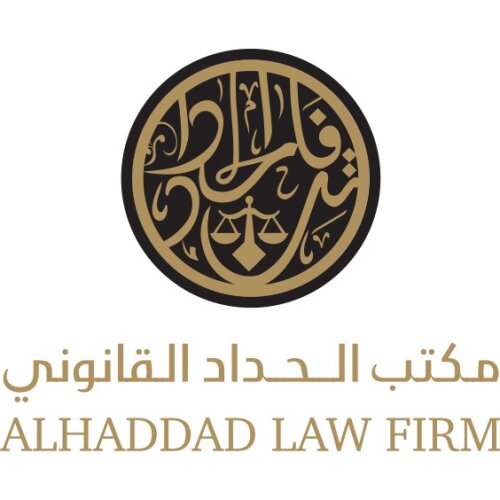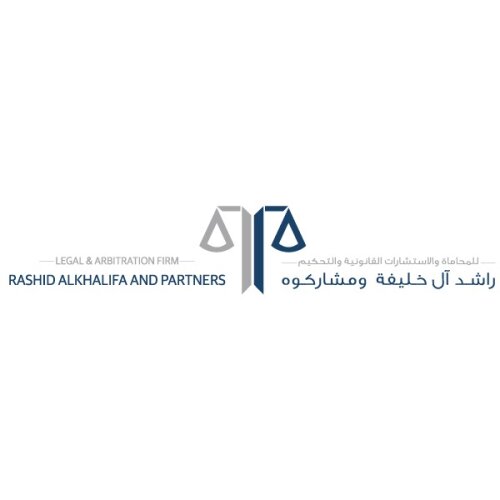Best Reinsurance Lawyers in Manama
Share your needs with us, get contacted by law firms.
Free. Takes 2 min.
List of the best lawyers in Manama, Bahrain
About Reinsurance Law in Manama, Bahrain
Reinsurance law in Manama, Bahrain is a specialized area within the insurance industry that deals with the practice of insurers transferring portions of their risk portfolios to other parties to reduce the likelihood of a large payout. This practice allows insurance companies to manage risk more effectively, ensuring they remain solvent and capable of paying claims. Manama, as the capital city, serves as a hub for financial and insurance activities in Bahrain, supported by regulations aimed at promoting transparency, accountability, and stability. The Central Bank of Bahrain (CBB) is the primary regulatory authority overseeing reinsurance activities in the country.
Why You May Need a Lawyer
There are several circumstances in which individuals or businesses might require legal assistance in reinsurance matters:
- Contract Negotiations: Crafting and negotiating reinsurance agreements to ensure compliance with local laws and company policies.
- Dispute Resolution: Resolving disputes that may arise between parties over terms or claim settlements in reinsurance contracts.
- Compliance Issues: Ensuring adherence to the regulatory requirements set by the Central Bank of Bahrain.
- Risk Management: Advising on risk management strategies that align with industry standards and legal frameworks.
- Financial Transactions: Handling complex financial transactions related to reinsurance, including mergers and acquisitions.
Local Laws Overview
Key aspects of Bahraini laws relevant to reinsurance include:
- Regulatory Oversight: The Central Bank of Bahrain regulates the reinsurance sector, ensuring companies comply with legal standards and maintain financial stability.
- Licensing Requirements: Reinsurance companies must obtain appropriate licenses to operate within Bahrain, which entails meeting strict capital and solvency thresholds.
- Contractual Obligations: Reinsurance contracts need to comply with both Shariah principles and conventional regulations, often involving complex legal interpretation.
- Dispute Mechanisms: Bahrain's legal system provides for arbitration and other dispute resolution mechanisms that reinsurance entities can use under the Civil Procedure Law.
- Financial Reporting: Companies must maintain detailed financial records in accordance with International Financial Reporting Standards (IFRS) as adopted in Bahrain.
Frequently Asked Questions
What is reinsurance?
Reinsurance is the practice where insurance companies transfer part of their risk portfolios to other insurers, which helps them mitigate potential large losses.
Why is reinsurance important?
Reinsurance helps distribute risk, ensuring that insurance companies remain solvent and can cover claims, thereby providing financial stability to the market.
Who regulates reinsurance in Bahrain?
The Central Bank of Bahrain is responsible for regulating the reinsurance sector, ensuring compliance with the relevant laws and financial standards.
What types of reinsurance arrangements exist?
Common types include proportional treaties, where premiums and losses are shared proportionally, and non-proportional treaties, which cover losses above a certain threshold.
How are reinsurance contracts enforced in Bahrain?
Reinsurance contracts are enforced through the judicial system or arbitration processes, depending on the contract terms and legal preferences stipulated in the agreement.
Can foreign reinsurance companies operate in Bahrain?
Yes, foreign reinsurance companies can operate in Bahrain, provided they meet the licensing and regulatory requirements set by the Central Bank of Bahrain.
What are the legal obligations of reinsurance companies in Bahrain?
Obligations include securing necessary licenses, adhering to financial reporting standards, and complying with local laws and regulations.
What role do lawyers play in reinsurance?
Lawyers assist with contract drafting, regulatory compliance, dispute resolution, and advising on complex legal and financial transactions in the reinsurance sector.
How does Bahrain ensure compliance in reinsurance?
Compliance is ensured through rigorous regulatory oversight by the Central Bank of Bahrain, with regular audits and mandatory reporting obligations for all reinsurance firms.
Are there specific documents needed for reinsurance contracts?
Documents typically required include the reinsurance agreement, financial statements, compliance certificates, and evidence of meeting licensing requirements.
Additional Resources
For individuals seeking further information or assistance regarding reinsurance in Bahrain, the following resources may be helpful:
- Central Bank of Bahrain (CBB): The main regulatory body providing guidance and compliance frameworks for reinsurance activities.
- Bahrain Chamber for Dispute Resolution (BCDR): Offers mediation and arbitration services for resolving commercial disputes including those involving reinsurance.
- Bahrain Insurance Association: An industry body that supports insurers and reinsurers with advocacy and professional development resources.
Next Steps
If you require legal assistance in reinsurance matters, consider the following steps:
- Identify Your Needs: Clearly define the legal assistance you need, whether it's contract review, compliance advice, or dispute resolution.
- Research Law Firms: Look for law firms specializing in reinsurance and financial services law with a solid reputation and experience in the Bahraini market.
- Consult Professionals: Schedule consultations with potential legal advisors to discuss your situation, understand their approach, and evaluate their expertise.
- Engage a Lawyer: Select a lawyer or law firm that best aligns with your needs, budget, and desired outcomes.
- Maintain Communication: Work closely with your legal team, providing necessary documentation and feedback to ensure your needs are met.
Lawzana helps you find the best lawyers and law firms in Manama through a curated and pre-screened list of qualified legal professionals. Our platform offers rankings and detailed profiles of attorneys and law firms, allowing you to compare based on practice areas, including Reinsurance, experience, and client feedback.
Each profile includes a description of the firm's areas of practice, client reviews, team members and partners, year of establishment, spoken languages, office locations, contact information, social media presence, and any published articles or resources. Most firms on our platform speak English and are experienced in both local and international legal matters.
Get a quote from top-rated law firms in Manama, Bahrain — quickly, securely, and without unnecessary hassle.
Disclaimer:
The information provided on this page is for general informational purposes only and does not constitute legal advice. While we strive to ensure the accuracy and relevance of the content, legal information may change over time, and interpretations of the law can vary. You should always consult with a qualified legal professional for advice specific to your situation.
We disclaim all liability for actions taken or not taken based on the content of this page. If you believe any information is incorrect or outdated, please contact us, and we will review and update it where appropriate.










